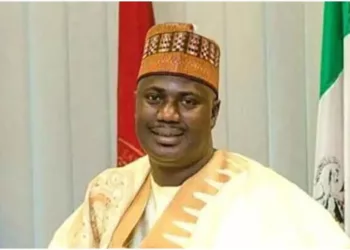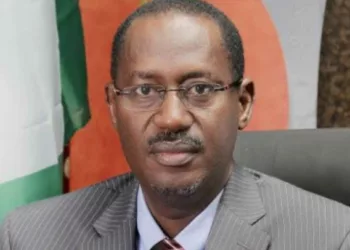Pressed for more revenues, government plans to jerk up tax collections to boost the country’s revenue to GDP profile, which is one of the lowest in the world.
The minister of Finance, Budget and National Planning, Mrs. Zainab Ahmad said the ongoing tax reforms will be an annual task adding that the 2019 finance bill is in line with achieving an increase in government revenue to GDP ratio to 15 per cent by 2023 from the current six per cent.
Speaking at PwC’S executive session where stakeholders gathered to deliberate on the finance bill and tax strategy business in Lagos yesterday, Ahmad explained that the tax reforms and the finance bill which was recently proposed to the national assembly would be an annual exercise and subsequently there would be more consultation with the private sector and key stakeholders.
Stating that for Nigeria to achieve sustainable developmental goals (SDGs), it needs fiscal sufficiency and buoyancy, which must come through Domestic Revenue Mobilization (DRM), Ahmad said Nigeria needs a lot of resources to actualize the ERGP and other development plans, which are at risk of being underfunded.
“Revenue shortfalls have been experienced since 2017, when the Economic Recovery and Growth Plan (ERGP) was launched, resulting in serious deviations from our targeted revenue and expenditure projections. The infrastructure master plan alone requires about $3 triillion over the next 30 years to sufficiently address our infrastructure deficit.
She said: “The Nigerian economy is characterised by structural challenges that limit the country’s ability to sustain economic growth, create more jobs and achieve significant poverty reduction. One of the biggest challenges of all is our high dependence on oil for our economic activities, fiscal revenues and foreign exchange earnings.
“In 2016, Nigeria fell into recession due to its vulnerability to oil. Although the oil and gas sector accounted for just about 10 per cent of GDP, it represented 94 per cent of export earnings and 62 per cent of Government revenues (Federal and State) in 2011-2015.
“This narrative is changing but we still have much more to do to get to our desired revenue to GDP ratio of 15 per cent by 2023, which we anticipate to come from non-oil revenues. We must grow our tax to GDP ratio from the current six per cent as at 2018.
“Based on the non-oil revenue performance as at June 2019, we are on track to further improve our tax to GDP ratio. Although we are improving, we are way below the Sub-Sahara Africa (SSA) average of about 19 per cent. Ghana, for example has revenue to GDP ratio of about 14 per cent in 2018 whereas other African Peers including Cameroon and Kenya recorded 16 per and 18 percent in 2018 respectively.”
“We have very low tax collection efficiency, archaic tax laws that are not evolving at commensurate pace with businesses, leakages in our revenue generation, low tax compliance rates, high level of evasion and poor tax morale to mention a few. Fixing these issues require robust, tough, well-coordinated and multi-faceted reforms.
“One of these reforms is to update our archaic tax laws which have not been reviewed in over a decade, with the most recent amendments being the amendment of company income tax act (CITA) in 2007 and personal income tax act (PITA) in 2011. Whereas businesses and the commercial environment continue to evolve, our tax laws remained static.
“The Nigerian tax system was built on a progressive tax system but over the years, some of the laws have become regressive at some instances. More so, it is best practice to accompany budgets with a finance bill that outlines how the budget will be funded, and the reality is, Nigeria must move away from relying on financing budgets from oil revenues.”
She added: “Regarding the 2019 Budget, as at 30th June, the actual aggregate revenue as per our Fiscal Accounts was N2.04 trillion, indicating a revenue shortfall of 42 percent, attributable to underperformance of both oil and non-oil revenue targets.”
Speaking on the finance bill, she said: “In view of these, Mr. President submitted the Finance Bill, 2019 on the 14th of October 2019 to accompany the 2020 Executive Budget Proposals & 2020 Appropriation Bill, which proposes to introduce tax reforms that will help Government achieve its revenue projections for the 2020 Budget of N8.155 trillion.
“The Finance Bill has five strategic objectives, which include the following, promoting Fiscal Equity by mitigating instances of regressive taxation (such as tax reforms for the insurance sector, reforming Domestic Tax Laws to align with Global Best Practices such as taxes of digital business & e-commerce, introducing Tax Incentives for Investments in Infrastructure and Capital Markets (such as Targeted incentives for REITS and securities lending in the Capital Market.
“Supporting Micro, Small & Medium-sized Businesses in line with the Ease of Doing Business Reforms such as VAT Threshold and lower CIT rates for MSMEs and raising Revenues for Government to fund the 2020 Budget (VAT rate increase and excise duty on imported excisable goods.



